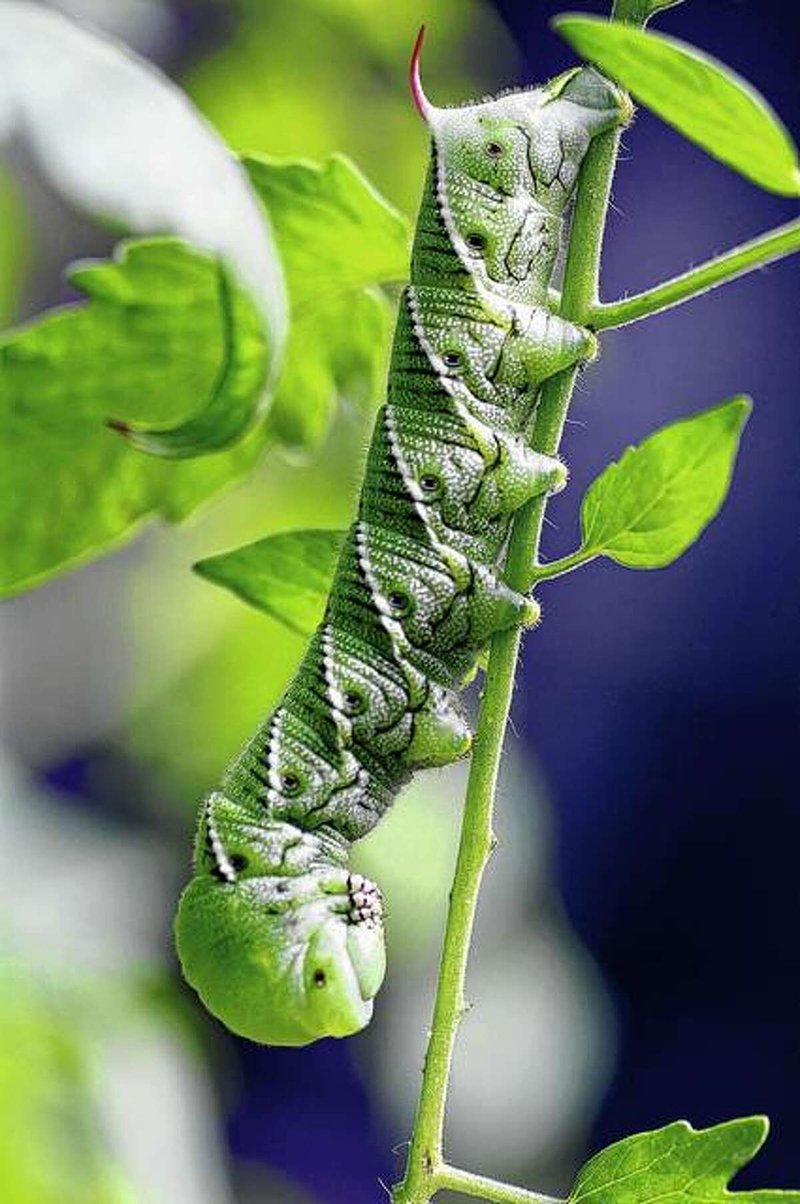
In this article, we’ll dive into the world of hornworm predators. We’ll explore who these helpful critters are, how they operate, and why having them around can make your garden thrive. So grab a cup of coffee, and let’s get to know the heroes of the garden!
What Are Hornworms?
Hornworms, mainly the Eastern and Western types, belong to the caterpillar stage of moths in the Sphingidae family. You might recognize them by their chunky, green bodies and the tiny horn-like protrusion at their rear ends. They can grow up to four inches long and can be rather voracious eaters, especially fond of tomato and pepper plants.
You might be wondering why these caterpillars are so problematic. Well, they can strip your garden plants of leaves in just a few days, leading to significant damage. Plus, their camouflage makes them hard to spot. They blend in so well with the foliage that you might not realize they’re there until it’s almost too late!
So, what can you do? This is where the natural predators come into play, acting like little gardeners that help keep your plants happy and healthy.
Ladybugs: The Charming Garden Guardians
You might be more familiar with ladybugs as cute little critters fluttering around flowers, but they’re also valuable allies against hornworms. These beetles look great in your garden and are tireless hunters. While they primarily eat aphids, they won’t pass up a juicy hornworm if they stumble upon one.
One way ladybugs help control hornworm populations is by laying their eggs near them. Once the larvae hatch, they seek out hornworms as a food source—talk about a win-win! This natural method not only reduces the hornworm numbers but also promotes a balanced ecosystem, as ladybugs contribute to the overall health of your plants.
If you want to attract ladybugs to your garden, consider planting flowers like marigolds or dill. They love these blooms and will flock to your garden, turning it into a ladybug haven.
Parasitoid Wasps: The Silent Assassins
Now, let’s talk about some of the garden’s more mysterious defenders—parasitoid wasps. These tiny wasps are a bit like secret agents, stealthily doing their job without drawing much attention. They lay their eggs inside hornworms, and when the larvae hatch, they consume the host from the inside out. While it sounds a bit gruesome, it’s effective!
One common species is the Braconid wasp, often found in gardens where hornworms are present. The good news is that they won’t harm your plants or bother you; they focus purely on controlling hornworm populations. If you see hornworms with little white rice-like structures on them, that’s a sign that parasitoid wasps are already at work—nature’s version of pest control!
Keeping your garden diverse, with flowering plants and native vegetation, can help attract these wasps. They thrive in environments where they can find food sources and safely reproduce.
Predatory Beetles: The Ground Level Hunters
Among the most tireless hunters are predatory beetles, such as the ground beetle. These beetles are beneficial for your garden as they roam through the soil, consuming pest larvae and even adult hornworms. They’re often overlooked due to their brown or black coloration, but they play a vital role in keeping soil health intact.
Ground beetles are nocturnal, meaning they are most active at night. If you’ve noticed fewer hornworms, it might be due to these little beetles having munch-fests while you’re asleep. They can consume several pests daily, helping keep hornworm levels down without you needing to lift a finger.
To encourage ground beetles, maintain a diverse garden environment. They love areas with leaf litter, mulch, and plenty of hiding spots. This creates an ideal habitat for them to thrive.
Birds: The Feathered Friends
Birds are natural pest control agents, and many species enjoy munching on hornworms. From sparrows to blue jays, these feathered friends can make a massive difference in pest management. As they flutter around your garden, they are constantly on the lookout for a snack, and hornworms can be a tasty option.
To attract birds, you can set up feeders, birdbaths, and even plant berry shrubs. Besides enjoying their beauty and songs, you’ll be getting free pest control in the process. Just remember that while they are excellent hunters, they might enjoy more than just your pesky hornworms!
The great thing is that when you create a bird-friendly garden, you’re not just helping with hornworm control; you’re fostering a thriving ecosystem that benefits all kinds of plants and wildlife.
Other Beneficial Insects: Nature’s Cleanup Crew
Apart from the buzzing and chirping creatures, many other beneficial insects help manage hornworm populations. These include lacewings, hoverflies, and various types of predatory wasps. Lacewing larvae are particularly voracious and are often referred to as “aphid lions” due to their insatiable appetite for soft-bodied pests.
You might not see these insects as they are smaller and less noticeable, but they play an essential role in pest control. By incorporating native plants and flowers in your garden, you can create an inviting habitat for them, thus naturally keeping hornworm populations in check.
Encouraging a diverse ecosystem in your garden isn’t just good for pest control; it’s a win for the environment. These tiny helpers contribute to pollination and soil health, making for a robust garden.
Keeping Your Garden Healthy for Predators
You might be wondering how to keep these natural predators thriving in your garden so they can do their work effectively. Here are a few tips to ensure your garden remains a haven for beneficial insects and animals:
- Avoid Pesticides: Chemical pesticides can harm beneficial predators. Opt for organic methods instead.
- Diverse Planting: Plant a mix of flowers and vegetables to attract various predators and pollinators.
- Provide Shelter: Leave some areas of your garden a bit wild to create hiding spots for beneficial insects.
- Water Sources: Adding birdbaths or small ponds can attract birds and beneficial insects.
By creating a welcoming environment, you’re investing in the longevity and health of your garden. These natural predators will help keep your plants safe while making your gardening experience more rewarding.
Natural predators of hornworms play a crucial role in maintaining the health and balance of your garden. From charming ladybugs to stealthy wasps and feathered friends, these creatures work tirelessly to keep hornworms in check. By fostering a diverse ecosystem, you’re not just protecting your plants; you’re encouraging a thriving habitat for all sorts of wildlife.
So, the next time you’re out in your garden, take a moment to notice the little helpers around you. With the right support, you’re well on your way to keeping those pesky hornworms at bay and enjoying a vibrant, healthy garden. Happy gardening!

